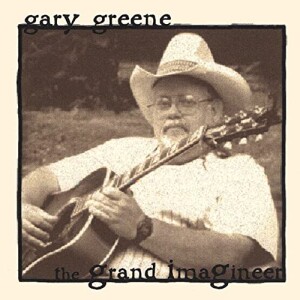 At one of my local folk clubs the other week, the compere said if he were asked to epitomise ‘traditional folk music’ he would have to choose one of the many singers like Jimmy Hutchinson. I think maybe he was right, but then the thought crossed my mind, what about the scene on the other side of the Atlantic? How would they epitomise their folk music?
At one of my local folk clubs the other week, the compere said if he were asked to epitomise ‘traditional folk music’ he would have to choose one of the many singers like Jimmy Hutchinson. I think maybe he was right, but then the thought crossed my mind, what about the scene on the other side of the Atlantic? How would they epitomise their folk music?
When I was listening to these two albums it struck me how different, yet in a sense so similar these two gentlemen are. Jimmy Hutchinson now lives in Perth, but originally from Frobost on the island of South Uist, Scotland. Therefore, he’s bilingual in English and Gaelic, and pulling songs from his rich heritage, songs he may well have learnt from other older singers. Many of these songs will be hundreds of years old. Gary Greene, on the other hand, is from the U.S.A. and is living in a warmer climate, taking influences, and singing and writing songs derived from experiences in his everyday life – very much the same as the writers of ‘traditional’ songs must have done all those years ago. Neither of these singers are particularly famous, both are different, but similar in their own way. All of it makes up the rich pattern of folk music.
Jimmy is now close to the autumn of his years; he has always chosen to sing mainly unaccompanied, as he does on this album. This may not be to everybody’s taste, but Jimmy is one of the few singers who can do it superbly. The trick is to select songs carefully. Listening to Jimmy, he has the knack of carrying the tune, rhythm and the ‘grace notes’ in his voice. The result absolutely commands your attention, and when melded with his Scots accent, the result is devastating. All but two of Jimmy’s songs are traditional. ‘Erin-Go-Bragh’ , ‘She Was a Rum One’ , ‘Matty Groves’, ‘The Overgate’ , ‘The Beggarman’ and many more are all in the collection and need no introduction. At track 6 is a song not heard very often — ‘I’ll Lay Ye Doon Love’, a fragment with verses added by Jimmy. ‘Corachree’, the title song, is an Aberdeenshire love song, reflecting on the hard life farm workers endured.
Not all the songs on the album are sung unaccompanied, however. On ‘The Beggarman’ he adds a simple backing from the fiddle of Tom Spiers, and on track 9 he is accompanied by Brian Miller on guitar. I was surprised to find only one song sung in Gaelic, this being ‘Phiege a Grath’ written by Roddy Campbell from Uist. I understand it’s a love song, remembering his love, Peggy, and wishing he was back with her instead of sailing the oceans on a cold wet night. To complement the traditional songs on this album Jimmy ends it with the Hamish Henderson song ‘The D-Day Dogers’; on this he is accompanied by Ian MaCalman on harmonica.
To sum up this is a nice simple good quality album with songs sung by a singer who has a real feeling for the material – one of the bearers of the tradition that younger, newer singers can learn from.
Probably not as old in the tooth as Jimmy Hutchinson, Gary Greene is singing and writing his songs in a younger country. Along with thousands of other semi-professional performers, he is tradition in the making. Gary, who comes from northern Georgia, has a day job as a tour guide at New Echota in Calhoun, Ga. Gary has been singing folk music and telling stories for over 25 years now, and in his words “I hasn’t grown up yet.” The album was produced and mastered by Gene Brigham and Ralph Peters. True, this album may have benefited from some of today’s studio technique, but to their credit it has a nice feel to it; no overdubs, just plain old down-home honesty.
Gary’s singing reminds me of John Prine, Woody Guthrie and a bit of Tom Paxton. There are 16 tracks, not counting the 10 second intro by Billy Joe Shaver. All are penned by Gary. ‘Cherokee Names’ is a tribute song to the plight of Native Americans. Other songs with titles like ‘Hard to Stumble’ ‘Seven Hills Green’, Constant Companion’, and ‘Zachery’ fall into the realm of love songs. ‘Dead Mans Records’, Kings in the Castle’, Rain Turns to Snow’, and ‘Music in the Mist’ are classic observations on life in folk song. After some melancholy – ‘Can’t Get Back Home’, ‘Late in the Evening’ and ‘Child of these Hills’ – comes a short ‘Radio Station Break’ intro to ‘Original Tunes’, a little bit of country rock co-written with Gene Brigham and Ralph Peters, which livens it up superbly at the end.
Singers like Gary Greene and Jimmy Hutchinson beg the question: are they the tradition bearers of their part of the world? Maybe in a 100 years or so, if music survives, folk fans, if they exist then, could well be looking back at Gary’s songs. Maybe hundreds of other singers will be out there, doing their own thing, singing their hearts out every week in coffee houses up and down the U.S.A. Perhaps they will be saying “Hey this is our heritage. I got this song off an old CD — remember them?”
Who knows?
(Living Tradition, 2000)
(Self-released, 2002)
